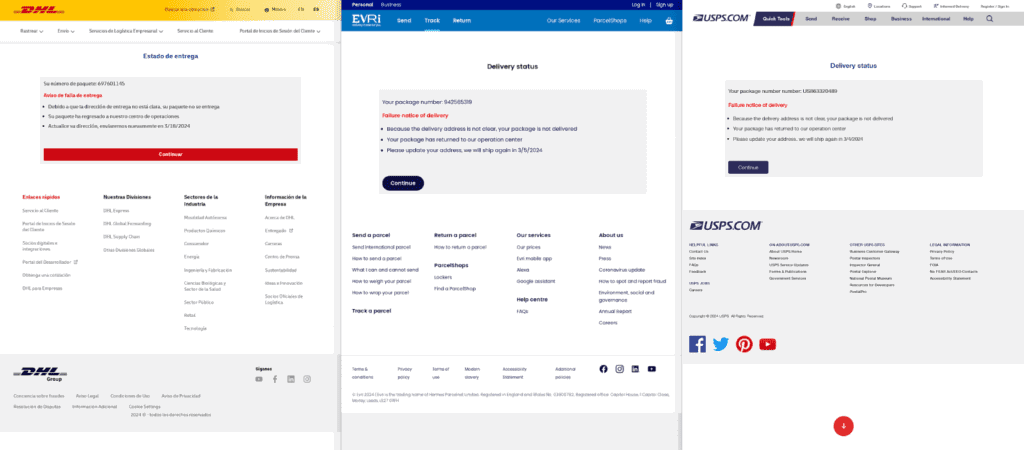Darcula: The New Phishing-as-a-Service Targeting Android and iPhone Users Worldwide

A sophisticated phishing-as-a-service (PhaaS) operation dubbed ‘Darcula’ has emerged, utilizing over 20,000 domains to impersonate brands and extract credentials from Android and iPhone users across more than 100 countries.
Darcula’s reach extends across various sectors, from postal and financial services to government agencies and telecommunications providers, offering cybercriminals a selection of over 200 templates for their fraudulent activities.
 Landing pages available in the Darcula kit (Netcraft)
Landing pages available in the Darcula kit (Netcraft)
What sets Darcula apart is its utilization of the Rich Communication Services (RCS) protocol, employed by Google Messages, and iMessage instead of traditional SMS for delivering phishing messages to targets.
Initially brought to light by security researcher Oshri Kalfon last summer, Darcula has gained traction in the cybercrime community, being implicated in several notable phishing incidents, including scams affecting users in the UK and package fraud schemes mimicking the United States Postal Service (USPS).
See Also: So, you want to be a hacker?
Offensive Security, Bug Bounty Courses
Unlike conventional phishing methods, Darcula leverages modern technologies like JavaScript, React, Docker, and Harbor, allowing for seamless updates and feature enhancements without the need for clients to reinstall phishing kits.
Featuring 200 phishing templates localized for various countries, Darcula’s landing pages are meticulously crafted, incorporating authentic language, logos, and content tailored to specific regions.
The platform streamlines the setup process for fraudsters, enabling them to select a brand to impersonate and deploy the corresponding phishing site and management dashboard within a Docker environment.
Darcula primarily utilizes “.top” and “.com” top-level domains for hosting its purpose-registered domains, with approximately one-third of these domains being supported by Cloudflare.
In a departure from SMS-based tactics, Darcula leverages RCS (Android) and iMessage (iOS) to deliver phishing messages to victims, capitalizing on the perceived legitimacy and enhanced security features offered by these protocols.
.png) RCS message sent from Darcula (Netcraft)
RCS message sent from Darcula (Netcraft)
Trending: Digital Forensics Tool: mailMeta


